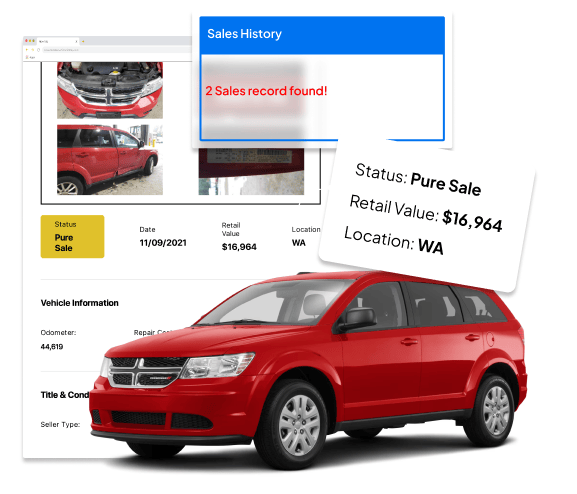When it comes to exporting American used cars to international markets, there’s a growing demand for transparency, reliability, and trustworthiness in the vehicle purchasing process. Buyers, whether they are dealers, enthusiasts, or individuals, want assurance that the cars they import meet their expectations and are free from hidden issues. This is where the role of a vehicle history report becomes crucial. In this comprehensive guide, we will explore the significance of vehicle history reports in the context of American used car exports, and how they can enhance the buying experience for both sellers and buyers.
The Rise in Demand for American Used Cars for Export
American used cars have earned a reputation and are in high demand due to their diversity, quality, and accessibility. Here are some reasons why international buyers are drawn to American used cars for export:
- Variety of Makes and Models: The United States boasts a wide variety of car manufacturers, offering choices from American classics to global brands like Ford, Chevrolet, Jeep, and more.
- Modern Technology: Many American vehicles are equipped with advanced technology, making them attractive to buyers seeking modern amenities.
- Well-Maintained Fleet: Due to regular maintenance and favorable driving conditions in the US, American used cars are often in good mechanical shape.
- Competitive Pricing: The US market frequently offers competitive pricing, making American used cars an affordable option for buyers worldwide.
- Resale Value: Some American vehicles hold their resale value well, making them appealing investments for buyers who plan to resell in their home markets.

The Challenges of Buying American Used Cars for Export
While American used cars offer many advantages, there are challenges to consider:
- Unknown History: Buyers often lack information about a car’s history, including whether it has been in accidents or had major repairs.
- Distance and Inspection: For international buyers, physically inspecting the car before purchase is often impractical due to geographic distances.
- Regulatory Compliance: Importing cars into other countries can involve complex regulations, including safety and emissions standards.
- Hidden Issues: Some cars may have hidden issues that are not apparent during a basic inspection.
This is where a vehicle history report steps in to address many of these challenges.
What is a Vehicle History Report?
A vehicle history report is a comprehensive document that provides a detailed record of a car’s past. It compiles information from various sources, including government agencies, insurance companies, and vehicle registration records. The report offers valuable insights into a vehicle’s background, including:
- Accident History: Details of reported accidents, including the extent of damage and whether the vehicle was declared a total loss.
- Title Information: The report includes title details, such as salvage or rebuilt titles, which indicate previous damage.
- Odometer Readings: Information about the vehicle’s mileage history, helping verify the accuracy of the odometer reading.
- Ownership History: A record of previous owners and the duration of their ownership.
- Maintenance Records: Information on routine maintenance and repairs performed on the vehicle.
- Auction records and photos: offer insights into a car’s past, showcasing its history of being sold at auctions, providing valuable data about its resale journey and condition
- Recalls and Safety Issues: Alerts about any manufacturer recalls or safety-related issues associated with the vehicle.

The Role of Vehicle History Reports in American Used Car Exports
Vehicle history reports play a pivotal role in the export of American used cars for several reasons:
- Transparency and Trust: Vehicle history reports provide transparency, instilling trust between sellers and buyers in the export market. Buyers gain confidence in their purchases when they have access to detailed vehicle history.
- Risk Mitigation: By identifying potential issues in a car’s history, such as accidents or title problems, vehicle history reports allow buyers to mitigate risks and make informed decisions.
- Preventing Fraud: Reports help prevent fraud by confirming the accuracy of mileage readings and exposing attempts to roll back odometers.
- Ensuring Regulatory Compliance: In many countries, importing a car requires adherence to safety and emissions standards. Vehicle history reports can help buyers ensure that cars meet these regulations.
- Facilitating Financing: Some international buyers may require financing for their purchases. Vehicle history reports provide lenders with the assurance needed to approve loans.
- Streamlining the Buying Process: Reports streamline the car-buying process, reducing the need for time-consuming and costly physical inspections.
Improving Resale Value: Buyers who plan to resell American used cars in their home markets can command higher prices when they can provide comprehensive vehicle history reports to their customers.
How to Obtain a Vehicle History Report at Detailed Vehicle History
Obtaining a car history report at Detailed Vehicle History is relatively straightforward. Here are the steps to follow:
- Locate the VIN: You will need the vehicle’s identification number, known as the VIN. This unique code is typically found on the dashboard near the windshield or on the driver’s side door frame.
- Enter the VIN: Go to Detailed vehicle History website and enter the VIN and other required information into the VIN check form. Pay the required fee for the report.
- Review the Report: Once you receive the report, review it carefully. Look for any red flags, such as accident history, title issues, or odometer discrepancies.
- Ask Questions: If you have any questions or concerns about the report, reach out to their customer support expert for clarification.
- Make an Informed Decision: Armed with the information from the vehicle history report, you can make an informed decision about whether to proceed with the purchase.
American used cars hold significant appeal for international buyers, but the lack of transparency and unknown histories can be a source of concern. Vehicle history reports play a vital role in mitigating these challenges by providing a comprehensive record of a car’s past. Whether you’re an exporter, a dealer, or a used car shopper, a vehicle history report ensures that you have the information you need to make confident and well-informed decisions when importing American used cars for export. It’s a valuable tool that enhances trust, transparency, and the overall buying experience in the international car market.
Frequently Asked Questions
- What are the benefits of importing American used cars for export?
Importing American used cars for export offers diverse vehicle options, modern technology, competitive pricing, and the potential for good resale value, making it an attractive choice for buyers worldwide.
- What role does a car history report play in the USA car import process?
A car history report is essential for USA car import as it provides transparency, helps buyers make informed decisions, mitigates risks, and ensures compliance with regulations by offering a comprehensive record of the car’s history.
- How can I obtain a car history report for American used cars I want to import?
To get a car history report, gather the car’s VIN (Vehicle Identification Number) and choose a reputable provider such as Carfax, AutoCheck, or Detailed Vehicle History. Enter the VIN on their website, pay the fee, and review the report to make an informed import decision.
Are car history reports valuable for American car exports, and do they enhance trust in the international market?
Yes, car history reports are highly valuable for American car exports as they enhance trust between sellers and buyers in the international market. They provide transparency, prevent fraud, and help buyers make confident decisions, making them an essential tool in the export process.







